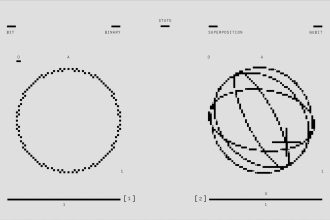Wittgenstein’s Philosophy: 7 Keys to Unlock His Genius
Many aspiring thinkers and seasoned scholars alike find complex philosophical ideas intimidating. Indeed, Wittgenstein’s Philosophy is often cited as one of the most challenging intellectual landscapes to navigate. Ludwig Wittgenstein, an Austrian-born British philosopher, revolutionized 20th-century thought with his unique approach to logic, language, and the nature of philosophical problems. But what if there were a clearer, more human path to understanding his profound, sometimes perplexing, insights? This guide offers 7 practical keys to demystify his groundbreaking work and make his genius accessible.
Demystifying Wittgenstein’s Philosophy: A Human Approach
The sheer depth and unconventional style of Ludwig Wittgenstein’s ideas can make them seem impenetrable. He wrote in aphorisms and dialogues, often challenging traditional philosophical methods. Understanding the man behind the thought can provide invaluable context, helping to humanize concepts that might otherwise feel abstract.
1. The Two Eras of Wittgenstein: Early vs. Late Philosophy
Wittgenstein’s philosophical journey is typically divided into two distinct periods, marked by his two major works. Grasping this evolution is the first key to unlocking his thought. His early work focused on the logical structure of language, while his later philosophy explored language in its everyday use.
The Early Wittgenstein: Logic and Language in the Tractatus Logico-Philosophicus
Published in 1921, the Tractatus Logico-Philosophicus is a dense, highly structured work attempting to define the limits of language and thought. Here, Wittgenstein proposed his “picture theory” of language, suggesting that propositions picture states of affairs in the world. He aimed to clarify what can be meaningfully said and what must remain silent. This period of Wittgenstein’s Philosophy is a rigorous exercise in logical analysis.
The Later Wittgenstein: Language Games and Forms of Life in Philosophical Investigations
Wittgenstein’s later work, most notably Philosophical Investigations (published posthumously in 1953), represents a significant shift. He moved away from the idea of a single, underlying logical structure of language. Instead, he introduced the concepts of “language games” and “forms of life,” arguing that the meaning of words lies in their use within specific social contexts. This perspective helps us understand how language functions in diverse, everyday scenarios.
2. Embracing Key Concepts: More Than Just Words
To truly grasp Wittgenstein’s Philosophy, one must engage with his central concepts. These are not mere academic terms but tools for rethinking how we understand the world and our place within it.
- Picture Theory of Language: Early idea that propositions are logical pictures of reality.
- Language Games: The idea that language operates like a game with rules, and meaning is derived from following those rules in specific contexts.
- Forms of Life: The shared, fundamental ways of acting and living that provide the background for our language games.
- Meaning as Use: The revolutionary notion that the meaning of a word is not an object it refers to, but how it is used in a language game.
- Philosophical Therapy: Wittgenstein believed many philosophical problems arise from misunderstanding how language works, and his philosophy aimed to dissolve these problems rather than solve them.
3. Utilizing Biographies for Context and Humanity
A significant key to making complex ideas accessible is understanding the person who conceived them. Biographies offer a window into Wittgenstein’s life, struggles, and intellectual development. Learning about his eccentricities, his intense self-criticism, and his relationships with other prominent thinkers can humanize his daunting texts. For instance, reading about his time as a village schoolteacher or his service in WWI provides a richer context for his philosophical shifts. For more on his life, the Stanford Encyclopedia of Philosophy offers a comprehensive entry.
4. Engaging with the Primary Texts Strategically
Don’t feel pressured to read the Tractatus or Philosophical Investigations cover-to-cover on your first attempt. Approach them strategically. Start with a good introductory guide, then dip into specific sections of his works that align with your interests. Wittgenstein’s writing style is unique; it requires patience and a willingness to re-read passages multiple times.
5. Discussing and Debating His Ideas
Philosophy thrives on discussion. Engaging with others who are also studying Wittgenstein’s Philosophy can clarify concepts, challenge your interpretations, and deepen your understanding. Joining a philosophy reading group or online forum can provide an invaluable platform for this collaborative learning.
6. Recognizing the “Therapeutic” Nature of His Philosophy
Wittgenstein didn’t see philosophy as a body of doctrine but as an activity. His goal was often to show us that many philosophical problems are not deep truths about reality, but rather confusions arising from our misuse or misunderstanding of language. Approaching his work with this “therapeutic” mindset can transform a seemingly daunting intellectual exercise into a liberating exploration.
7. Patience and an Open Mind: The Ultimate Keys
Finally, understanding Wittgenstein’s Philosophy requires patience and an open mind. His ideas often challenge deeply ingrained assumptions about language, meaning, and knowledge. Be prepared to have your perspectives shifted and to sit with discomfort as you grapple with his profound insights. The journey is as rewarding as the destination.
Unlock the Secrets of Wittgenstein’s Philosophy Today
Ludwig Wittgenstein’s contributions reshaped the landscape of analytical philosophy and continue to influence diverse fields. While his work can seem formidable, by employing these seven keys—understanding his philosophical evolution, engaging with core concepts, using biographical context, strategic reading, discussion, recognizing his therapeutic approach, and cultivating patience—you can unlock a richer, more profound appreciation of his genius. His ideas offer not just answers, but new ways of seeing the world and our place within it. For further exploration into the history of analytical philosophy, consider exploring resources like Wikipedia’s entry on Analytic Philosophy.
Ready to embark on your journey through Wittgenstein’s Philosophy? Start exploring today!
© 2025 thebossmind.com
Featured image provided by Pexels — photo by Josh Dormont










